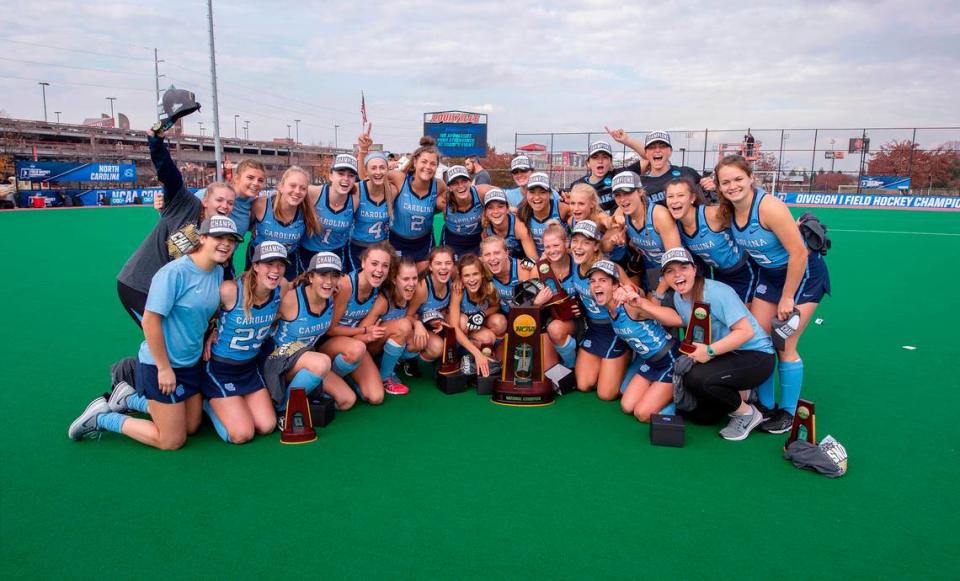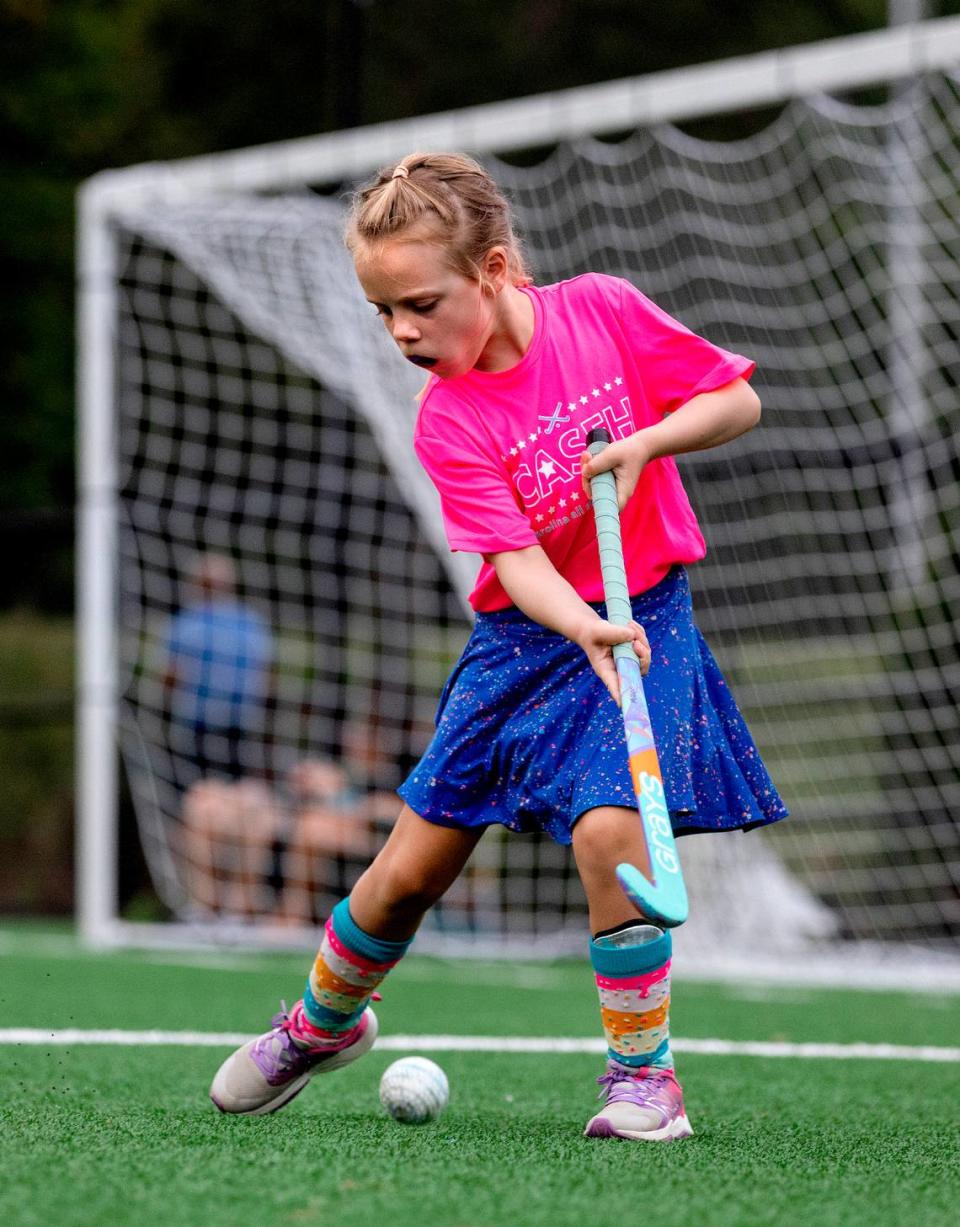As UNC field hockey continues dominance, local organizations search for their own success
A crop of young athletes holding candy cane-shaped sticks ping-pong a hard, heavy, hollow ball back and forth.
Clack-thud. Clack-thud.
Short, loud trills from the referee’s whistles echo through mostly empty stadium bleachers, halting a play. The athletes stop, listen to coaches and captains, reorganize, and resume playing.
Hockey season — field hockey season, is back again for the fall competitive season.
Since field hockey began growing its roots in the U.S., there have been small hot spots, pockets across the East Coast where the sports is popular. Outside those hot spots, it’s not as prevalent.
While the area’s numbers have slowly grown, the Triangle is not one of those hot spots.
Yet.
There are groups of people looking to change that, hoping local teams’ success at higher levels of play — and the once-every-four-years exposure the Olympics provides — can boost participation like other successful teams and sports have done throughout the Triangle. They’d like to see North Carolina become one of those hot spots.
“There’s no schools in Wake County that play outside of the private or independent schools,” Carolina All-Stars field hockey director Meghan Fulton said. “And so it would be really great if we were to see some field hockey grow in the Wake County schools, because I think then field hockey would just explode in our state.”
UNC leads the way
Erin Matson took a lot of Polaroid pictures over the summer.
Matson, 23, has lived and breathed UNC field hockey since 2018, winning four NCAA Championships over five years as a player.
This summer, ahead of her first season as the team’s new head coach, she ran UNC field hockey clinics at Karen Shelton Stadium.
There, current players joined Matson in teaching young recreational and travel players field hockey, alongside club coaches. Her hope was to get more kids excited about field hockey, and teach some experienced players more skills. Matson posted a few photos of her Polaroids on social media.
This summer, Matson held four camps, with athletes from across North Carolina participating.
“Well, I guess the more you win, right, the more people pay attention and like to follow you,” Matson said. “And there’s definitely not only more fans — students and everyone are paying attention.”
They’re paying attention. But are they also playing?
“There’s so many, you know, hurdles for us to overcome with the sport,” Matson said. “but we want them picking up field hockey sticks, and also get to a good game.”

A clinical approach
Division I schools across the state hold similar clinics, and for the most part fill them.
Clubs like Carolina All-Stars and Charlotte Ambush regularly see their travel athletes participate in clinics run by college programs — it’s beneficial for experienced high school players to learn what collegiate training looks like.
Those running the club teams and Matson see a common theme: Learning the game doesn’t always start with the 6-year-olds. More often, field hockey beginners are middle and high school-aged players.
“The only way our sport is going to grow is if we focus on that age group and that level,” Matson said. “By getting sticks in middle schoolers’ hands.”
The Tar Heels run one of a very few field hockey clinics to offer overnight experiences, which many middle and high schoolers prefer because it gives them that up-close-and-personal feel.
However, Matson said she purposefully makes these clinics open for all ages and skill levels to help get more sticks in hands. While it might not always be new athletes signing up, she said her hope is for these clinics to get popular enough to create more divisions by skill level.
“Our camp is definitely a mix of kids who want to really come to Carolina and want to get recruited and use it in that kind of sense,” Matson said. “And then opportunities for just kids to play and have a great experience.”
Matson said that even as she’s coaching the Tar Heels, she hopes to maintain her ability to relate to younger athletes at the youth level. She is, at 23, still relatively close in age to the stars of tomorrow.
“It’s just the nature of it,” Matson said. “I connect with them differently, I connect with them better. I know what they’re thinking because I am their age. So, yeah, I love it. I love being able to connect with them, and like having that common ground.”

Next steps
Matson’s reach extends beyond North Carolina. Her international experience has given her a larger platform, and that gives Matson greater goals.
Eventually, she hopes to take the Tar Heels’ clinics on the road, particularly toward the Midwest, where there’s even fewer kids playing than in North Carolina.
“My goal is to do more satellite ones next year,” Matson. “And we have our overnight summer camp. But I’d love to take a group of the girls to Texas, where there’s a hotbed there and go up north, do something there and go to Virginia.”
With the Tar Heels now in season, the school-based clinics — and those Matson is able to lead or attend — are over. But recreational and travel clubs will still host camps to get kids involved throughout the school year, with the hope of growing the game.
“We’re getting there, we’re improving, but it starts at the grassroots,” Matson said. “In 10 years, these kids are going to be the ones representing the U.S. in the Olympics and stuff … But there’s gradual improvement which is promising.”


